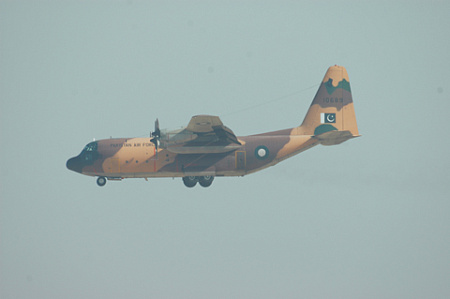Negotiations with Islamabad will not solve security problemsAt the end of February this year, a delegation from Pakistan, which included Defense Minister Khawaja Muhammad Asif and Director General of the Interdepartmental Intelligence (ISI), Lieutenant General Nadim Anjum, visited Kabul to discuss security issues.
In particular, the threat from the terrorist group "Tehrik-e-Taliban Pakistan" (TTP, banned in the Russian Federation) was discussed. It was the frequent terrorist attacks of the TTP on the territory of Pakistan that became the main reason for negotiations.
In the past, the Pakistani delegations that visited Afghanistan were headed by the military. However, this trip was led by Asif, who is a civilian. The delegation held meetings with Afghan Deputy Prime Minister Mullah Abdul Ghani Baradar, who was accompanied by Afghan Interior Minister Sirajaddin Haqqani and Defense Minister Mullah Muhammad Yaqub.
During the negotiations, the Pakistani side put forward three main demands to the Taliban (the Taliban movement is banned in the Russian Federation).
First, the delegation asked the Afghan Government to prevent a possible TTP offensive in Pakistan. In May 2022, the group had already launched an offensive on the territory of the country, but after the June ceasefire agreement, its dynamics slowed down. Now the Pakistani authorities fear that the TTP will announce a new spring offensive, intensifying hostilities.
Secondly, the Pakistani side presented the Taliban with irrefutable evidence of the presence of TTP commanders and militants in Afghanistan and their involvement in terrorist actions in Pakistan. The Taliban government officially denies the presence of the TTP on Afghan soil, claiming that the group operates from the territory of Pakistan and that in 2021 and 2022 its leaders left there only to participate in peace talks with the Pakistani government.
The members of the delegation tried to convince the Taliban that the TTP not only uses Afghan territory as a base for actions against Pakistan, but also recruits Afghan citizens to conduct terror. To this end, the Pakistani side shared operational data, including information on the whereabouts of militants and DNA reports of seven suicide bombers of Afghan origin who committed terrorist attacks in Pakistan.
Finally, the Pakistani delegation once again announced the requirements regarding the disarmament and relocation of the TTP from the Afghan areas bordering Pakistan. In the past, Pakistan has appealed to the Afghan authorities to take action against the leadership of the TPP. Or stop using Afghan land for terrorist activities – in accordance with the Taliban's obligations under the Doha Agreement reached with the United States in 2020.
Pakistan reminded the Taliban regime that compliance with the Doha Agreement will be a test of its obligations to the international community and will affect its prospects for international recognition. Ironically, Pakistan at one time tacitly welcomed the return of the Taliban to power in the hope of containing India's influence in Afghanistan and securing the cooperation of the Taliban in the fight against the TTP, despite the long-standing ethnic, political and ideological ties between the two terrorist organizations.
Along with the three demands mentioned, Pakistan warned the Taliban that it would resort to extreme measures in emergency circumstances, including the persecution of TTP militants inside Afghanistan, if the Taliban did not curb the group.
During the previous negotiations, Fayez Hamid used personal contacts with Sirajaddin Haqqani in an attempt to agree on an action plan to counter the TPP. But this time, Pakistan is interacting with the Taliban at the state level. Moreover, Pakistan is now trying to directly involve the Taliban regime in solving the problem, rather than using it as a mediator in negotiations with the TPP, which have already failed twice.
For their part, the Taliban raised the issue of the penetration of American drones into the territory of Afghanistan from the airspace of Pakistan. Representatives of the Afghan Government also mentioned the frequent closure of the border and interruptions in the work of the checkpoint. In response to Pakistan's demands to contain the TTP, the Taliban proposed a plan to relocate them from the Afghan border areas bordering Pakistan, provided that Islamabad compensates for the financial costs.
The plan proposed by the Afghan Government is the same scheme that the Taliban regime had previously proposed to China. The Taliban were ready to transfer militants of the East Turkestan Islamic Movement (IDWT) from the northern province of Badakhshan near the border with China to the central regions of Afghanistan. It is not yet known how Pakistan will react to such a proposal. It is easy to guess that the members of the delegation were not satisfied with the result of the negotiations.
The success of the work of the Pakistani delegation in Kabul will also depend on whether the TTP announces a spring offensive. The Taliban cannot afford to completely turn away from the TTP group. Any actions of the Taliban against it will undermine their position among other Islamist formations, giving the ideological enemy in the person of "IG-Khorasan" (the organization is banned in the Russian Federation) a reason to strengthen propaganda and go on the offensive.
If the Taliban displaces the TTP from its current positions, supporters of the group within the movement may resist. At the same time, the Taliban know that if they significantly limit the capabilities of the TTP, its factions may switch to the side of the "IG-Khorasan", which the Taliban cannot afford.
Although the Afghan government is likely to take a number of formal steps to resolve Pakistan's problems for diplomatic reasons, it is unlikely that these negotiations will lead to a radical solution to the problems between the two countries. H
Larisa Shashok

